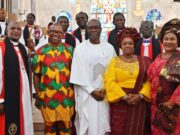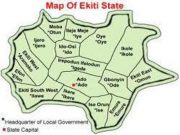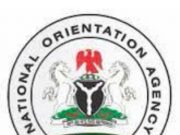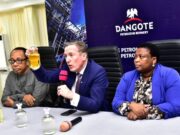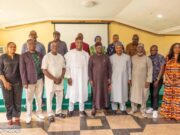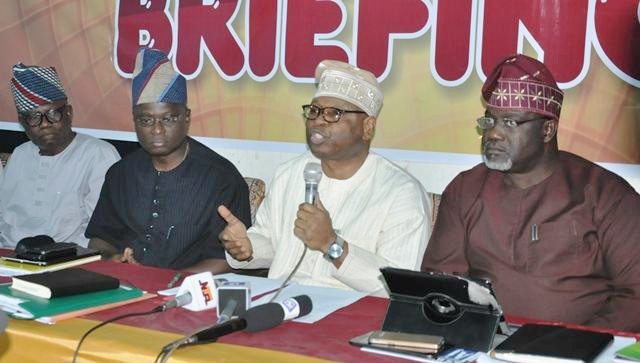
In its move to re-position the Broadcasting Corporation of Oyo State (BCOS), the owner state has announced the redeployment of 144 staff members of the broadcasting outfit.
The affected staff members have been moved to other ministries and parastatals of Oyo government, saying the development came to being for better and effective service delivery.
The Secretary to the State Government (SSG), Alhaji Olalekan Alli dropped the hint on Wednesday during a ministerial press briefing which was held at the state’s Ministry of Information, Culture and Tourism.
However, insiders informed PMParrot that over 176 staff members were affected in the said redeployment.
While allaying fears of retrenchment of the redeployed staff, the state’s scribe said: “It is to be noted that none of these workers is being sacked, disengaged or released from the services of Oyo State. On the contrary, they are only being redeployed to new offices and establishments where the government believes they will add greater value to its service delivery mandate. Their postings and redeployments are therefore in accordance with the service provisions.”
He added that: “Government wishes them to report in their new offices with the required vigor and enthusiasm worthy of their employment and respective statuses.”
The SSG posited that when the redeployment was fully implemented, the government’s proposed massive transformation of BCOS would exponentially expand the innate capacities and dormant resources of the broadcast station into a diversified public corporation capable of sustaining its operations and growth from its own internally generated revenues.
According to him, “this will not only free critical financial, material and human resources to the state government but should soon serve as a veritable source of funds to be deployed to other areas of public service delivery. At the conclusion of the ongoing restructuring, we intend that BCOS will become a national model of a successful and sustainably profitable public corporation whose example will be gleefully copied across Nigeria,” Alli added.
Explaining the vision of the state government towards the development, the SSG said “the vision is to be the leading media and entertainment hub that propels the unique cultural heritage of the Yoruba to the global market while the vision is creating pleasurable experiences for our target markets through the provision of exceptional products and service.”
Alhaji Alli recalled that to get the task done as professionally and as thoroughly as possible, the government engaged the services of the internationally renowned consulting firm, KPMG Advisory Services to assist in carrying out a comprehensive audit as well to propose appropriate structures and strategies.
According to him, for about four months in 2017, the firm deployed its staff and systems conducting interviews, tests and assessments of the human and material resources of BCOS with a view to developing a Target Operating Model Design and Business Plan, adding that the detailed document was submitted to the state government in July, 2017.
“It contained a summary of the assessment results and its recommendations for implementation. As part of the process, a Training Needs Assessment exercise was conducted for all staff to ascertain the proficiency of each staff along the various competence requirements of BCOS for their respective grade levels with the aim of identifying the competence gap and interventions required to bridge them. A total staff of 419 was planned for assessment but three of them were not eventually captured due to their absence either on medical grounds or an account of being on study leave.”
Of the 416 assessed, the SSG said, 209 were junior staff between levels 1 and 7; 149 were senior staff between levels 8 and 13 while there were 58 management staff between levels 14 and 15.
While the assessment tools used for the junior staff was basically Desktop Assessment (i.e. qualifications and disciplinary records), the tools employed for the senior staff included Competency Based Test (Intermediate level for levels 8 -10 and advanced Level for Levels 12 and 13). For the management staff, that is, levels 14 and 15, the tools used included the Desktop Assessment, Competency Based Test (Management Level) and Panel Interview.
“A summary of the Assessment Outcome showed that of the 209 junior staff assessed, 197 passed while 12 failed; of the 149 senior staff assessed, 35 passed and 114 failed while of the 58 management staff assessed, only 16 passed and 42 of them failed.”
“Based on the competency test and panel interview, the consultants found that 70% of the senior and management staff did not demonstrate the competence required for their respective grade levels. The details of the performance distribution by grade level and by department were provided in the report,” he disclosed.
Alli explained that: “Over the years, BCOS has been managed more like a Ministry dependent on Oyo State government subvention rather than as a corporation aimed at generating revenue for the government through annual dividends,” pointing out that the operation of the station was not financially sustainable as operating costs continued to outstrip revenue.
The media briefing was attended by the Head of Service, Mr Soji Eniade, the Special Adviser to Gov Ajimobi on Communication and Strategy, Mr Yomi Layinka and Akin Oyedele, the Senior Special Assitant on Print Media.
Packaged by Oyedapo Oyewole and Dare Alesinloye





















